|
Scripture Readings: Isaiah 25:6–9 | Psalm 24 | Revelation 21:1–6 | John 11:32–44
“Jesus said to her, ‘Did I not tell you that if you believed, you would see the glory of God?’” (John 11:40). Today we celebrate together the feast of All Saints, remembering that in Christ we share in His holy, world-wide communion… stretching not only across the globe, but across all ages as well. Each one of us who belong to Christ… our Parish family… we never stand alone, but belong together in God’s eternal Kingdom. Our Scripture readings today highlight an enduring message of hope for God’s people, empowering us to faithfully persevere even in the face of despair. Our first reading from the Prophet Isaiah came at a dark time in Israel’s past: the ancient empire of Assyria was violently dominating the whole region, and had just overrun and carried off the Northern Kingdom of Israel into Exile. The Southern Kingdom of Judah was now surrounded… hemmed in by hostile nations, and living under the constant threat of losing everything. In this dark time the Living God sent Isaiah, to remind His people to stand firm and be faithful to their LORD, trusting in Him even in the face of their powerful enemies. Today’s reading stands out in Isaiah as a surprisingly hope-filled passage… promising not just Judah’s deliverance, but God’s ultimate victory, not through destruction and death, like the Assyrians… but through the destruction of death. Isaiah paints a picture of universal peace… of the Living God drawing all peoples to Jerusalem to share in a splendid feast. And the LORD Himself will “destroy on this mountain the shroud that is cast over all peoples, the sheet that is spread over all nations; he will swallow up death forever. Then the Lord God will wipe away the tears from all faces, and the disgrace of his people he will take away from all the earth, for the Lord has spoken” (Isaiah 25:7-8). A royal feast for all, death itself destroyed, God wiping away the tears from every eye… this is the future hope of God’s eternal Kingdom. We know this wasn’t the end of Judah’s troubles. Not by a long-shot. But they would hold onto this hopeful promise, for centuries to come… helping them to trust in the LORD, and in His saving love. Our second reading today from the final book of the Bible, the book of Revelation draws on and renews the message God gave to Isaiah. Revelation was written near the end of the first century A.D., at a time when followers of Christ could expect to face serious trouble as well. As the Gospel spread throughout the Roman Empire and beyond, Christians were often the target of official persecution, or rejection from their old communities for embracing this new way of life. In Revelation, John shares an epic vision, rich with symbolic imagery drawing together all of the themes that run throughout the Scriptures… and opening up our eyes to see our world from God’s perspective. It is an intense, startling, and all too frequently misunderstood message, drawing our attention to the ultimate end of the ages. And again, Revelation points us towards the arrival of God’s eternal Kingdom, calling for Christians to remain faithful to Christ even in the face of death. This time though, it’s not just the nations that are being gathered together, but Heaven and Earth are reconciled, united together for good through the victory of Jesus; the Lamb of God who takes away the sin of the world. Our reading today is the consummation of God’s great rescue mission… the ultimate wedding feast celebrating His perfect salvation… destroying every obstacle that keeps us from His love: “See, the home of God is among mortals. He will dwell with them /as their God; they will be his peoples, and God himself will be with them; he will wipe every tear from their eyes. Death will be no more; mourning and crying and pain will be no more, for the first things have passed away” (Revelation 21:3-4). God Himself will be with them. Death will be no more. The LORD will wipe away every tear from their eyes. Again, we are given a glimpse of God’s eternal Kingdom, promised to us by the one who is “making all things new” (Revelation 21:5). We know that Christians continued to face all sorts of persecution over the centuries, and in many places today our brothers and sisters still suffer for Jesus’ sake. But this vision of God’s eternal Kingdom of life continues to carry us through… providing us with the hope that our Saviour will have the final say. These days, of course, we face our own challenges, temptations, and fears. Each generation of God’s people have our own narrow path to tread. Right now, most of us are concerned with the health and wellbeing of our loved ones, our friends, or even ourselves. We’re feeling cut off, and isolated from those we long to be with. We’re uncertain about the future of every aspect of our lives. We’re in need today of a hope that we can truly hold onto. Our Gospel reading reminds us that the Christian hope is not just for some distant day at the end of time… No, God’s eternal Kingdom has already broken into human history in Jesus Christ. Our reading today gives us a hope-filled glimpse of His ultimate victory, as our Saviour comes face to face with the death of someone He loves. There are many miracle stories in the Gospels, accounts of Jesus restoring the broken bodies… and spirits… and families of His people. But today we hear that He comes to bring the restoration of His friends… Lazarus, Martha, and Mary, who had all been torn apart by Lazarus’ death. This is one of the most stirring and striking stories in all of Scripture, pointing us to the climax of the cross that is soon to come, and it is well worth more time and reflection than we can give to it this morning. But as our Saviour, the incarnate King of glory confronts death at the tomb of Lazarus, He reveals God’s life-giving power for us even now… inviting you and I to see where Christ can be found today in the midst of our darkest moments…. bringing His eternal Kingdom near. How does Jesus reveal God’s eternal Kingdom of life in the face of death? First of all, He weeps. Jesus grieves at the grave of His friend. Too often in Church, we have this picture of Jesus untouched by pain or tragedy. We might see Him as merciful, or compassionate, but in a distant, untroubled way. We assume for Jesus to be God’s Son, all-knowing and all-powerful, nothing could really disturb His sense of composure or peace. But what if the fact that Jesus is God’s Son… that He fully shares in the power and knowledge of the Trinity, what if that actually makes Him more open to being moved by the suffering and grief of His people, not less? What if, in taking on our human flesh, Jesus did not hold back, but actually bears our griefs and sorrows like the prophet Isaiah says? “He was despised and rejected by others; a man of suffering and acquainted with infirmity; and as one from whom others hide their faces he was despised, and we held him of no account. Surely he has borne our infirmities and carried our diseases; yet we accounted him stricken, struck down by God, and afflicted. But he was wounded for our transgressions, crushed for our iniquities; upon him was the punishment that made us whole, and by his bruises we are healed” (Isaiah 53:3-5). Jesus our Saviour weeps with Mary and Martha at the grave of Lazarus, and He weeps with us, suffering with us in His love. This simple act tells us that it is not wrong for Christians to grieve. That having hope does not leave us unmoved by the pain and loss that we and others face. Rather, it shows us that we are called to share in the suffering of others. St. Augustine once said “Why did Christ weep except to teach us to weep?”[1] As we wait for God’s eternal Kingdom in which He will wipe every tear away, Christ calls us today to mourn with those who mourn, just as He does. To make known God’s unfailing love to the brokenhearted. Our Saviour teaches us to weep, but also to believe. To place our faith in Him, not only to grieve but to give life. Even in the midst of their pain, Jesus invites Martha and Mary to trust Him, and if they do, despite all their fears, “they will see the glory of God.” (John 11:40). Jesus then prays, not for His own sake, but that all those present may come to believe that God the Father always hears the prayers of His beloved Son. We too are invited to put our confidence and trust in Jesus Christ, placing our future hopes and present fears into His loving hands, that He may intercede for us… praying on our behalf… bringing us with all our cares and sorrows to the Father, who so loved the world that He sent the Son to rescue us. We can all think up lots of reasons not to believe in Jesus, but we are assured that faith in Him is truly the path to life. As the scholar Ben Myers puts it: “At the center of the Christian faith is not an idea or a theory or even a vision of life but the name of a person, Jesus Christ. Our faith centers on personal attachment to him.”[2] And as our Gospel reading today reminds us when we do believe in Him, all sorts of glorious, life-giving surprises await. For Jesus does more than mourn, and invite us to trust in Him… in the words of a beautiful old hymn: “He speaks, and listening to His voice new life the dead receive.”[3] Against all hope… all reasonable expectations… Jesus calls for Lazarus to come out of the tomb… out of death… and he obeys. No longer the undefeatable foe, the grave gives way before the Lord of Life. A foretaste of Christ’s final victory at the cross, and Easter morning. For that is when God’s eternal Kingdom of life truly began… the first moment when death itself was swallowed up “forever.” N.T. Wright makes this point: “Lazarus came back into ordinary human life. For him, the process of death was simply reversed. He could still become ill again. One day, he too would die… But the journey Jesus would make would be through death and out the other side into a new sort of life.[4] One which will never taste death again. This is the same New Life that Jesus offers to those who trust in Him; that passing through death united to Him, we await a resurrection life. Reunited with all the saints all who trust in Christ throughout the ages, gathered together at God’s table for all eternity. Where every tear from every eye is wiped away in His love. Sharing in the eternal Kingdom Christ won for us all at the cross. Christians believe in the Communion of Saints; that in Christ Jesus, all believers are bound together in ways that even death cannot break. Whether we are isolated, or surrounded by our sisters and brothers… whether we feel cut off, or are able to be embraced… whether we died millennia ago, or will live ‘til the Lord returns, we are all one, always, together in Christ with all the saints. So may our fellowship with one another be shaped by this beautiful truth. May we bear each other’s burdens, and support one another in times of sorrow. May we spur one another on to grow stronger together in our faith. May we serve God’s eternal Kingdom today, sharing Christ’s self-giving love. And may we rejoice as we remember that our world ends in life together. Amen. [1] St. Augustine, Tractates on the Gospel of John, 49.19. Quoted in Thomas C. Oden and Cindy Crosby, eds., Ancient Christian Devotional: A Year of Weekly Readings: Lectionary Cycle B (Downers Grove, IL: IVP Books, 2011), 252. [2] Ben Myers, The Apostles’ Creed: A Guide to the Ancient Catechism, ed. Todd Hains, Jeff Reimer, and Sarah Awa, Christian Essentials (Bellingham, WA: Lexham Press, 2018), 37. [3] Charles Wesley, O For A Thousand Tongues To Sing. [4] Tom Wright, John for Everyone, Part 2: Chapters 11-21 (London: Society for Promoting Christian Knowledge, 2004), 15–16.
0 Comments
Today we celebrate the Feast of All Saints (Transferred from November 1). Here is a few words from the introduction to the liturgical book For All The Saints. "Whenever we say the Apostles’ Creed, we confess our belief in “the communion of saints.” This term is rich in meaning and kaleidoscopic in its references. It can mean “the holy people of God,” the community of all who have been baptized into Christ Jesus. It can refer to the activity which sustains the unity of God’s people, sharing in the body and blood of Christ... The habit of remembering “the friends of God” has been one of the great delights of Christian people since the dawn of the Church. The reason for this is neither fancy theology nor sub-Christian superstition. It is simply that the history of God’s mighty acts of salvation is always a personal history. The Church believes that the divine purpose of justice, mercy, and love is revealed in the stories of particular persons. Indeed, it is through the stories of individual saints that the Almighty renews and strengthens the witness of the whole community of “the holy people of God.” Thus, the Calendar of Saints is meant to jog our memories, to remind us that today or tomorrow is the heavenly birthday of someone whose faith, holy life, and witness to Christ were so great in their own time that they continue to be a cause for celebration by us in our time." May we all be blessed today by the memory of God's grace at work in the lives of His saints, either those marked by the Church, or those whom we have known ourselves. Our service of Morning Prayer, Bulletin, & Sermon for this week can be found here: Our All-Ages Song can be found here: And our other Songs can be found here: Scripture Readings: Jeremiah 31:7–9 | Psalm 126 | Hebrews 7:23–28 | Mark 10:46–52
“Then Jesus said to him, “What do you want me to do for you?” The blind man said to him, “My teacher, let me see again.”” (Mark 10:51). A lot has happened to the outside of St. Luke’s Church this past month. After years of hopes and plans, and service, our building restoration work is now almost complete. That said, our restoration fundraising is still very much in progress. Right now we’re about one third of the way towards our fundraising goal. Much has already been accomplished, but we know there’s still much to do. Even so, it’s wonderful to actually see the longed-for restoration actually taking place. There are of course many other kinds of restoration we’re still longing for: pre-COVID-19 rhythms of life… full pews, and a packed Sunday school… reunions or reconciliations with those we love… healings of our bodies, our minds, and our souls. Our Scripture readings today from Jeremiah and the Gospel of Mark give us much to contemplate when it comes to hope of restoration. Things were looking pretty grim in Jeremiah’s days. Israel’s Northern tribes had already been overrun by Assyria, their people taken away as slaves, and scattered out among the nations. Those left in the Southern Kingdom of Judah, reduced to the region around Jerusalem, had survived Assyria’s onslaught, but were now living in the shadow of another ancient superpower: Babylon. By the time of our reading today from Jeremiah Chapter 31, Babylon had already defeated Judah once, and had taken away it’s royalty and upper classes into exile. This was a crushing blow to Judah’s people, who were on the brink of collapse… so many were trying to come up with plans to regain their nation’s independence… to find powerful allies to help them break free of Babylon. At this crucial time, Jeremiah kept preaching an unpopular message from the LORD God: that there was no way to go back, or to fight off this enemy… because it was God Himself who was sending Judah into Exile. In Jeremiah 29:4-6, the prophet sends word to those already in Exile, dashing their hopes, fed by several false prophets, that Judah’s pain would soon be over, and that things would shortly go back to normal. “4 Thus says the Lord of hosts, the God of Israel, to all the exiles whom I have sent into exile from Jerusalem to Babylon: 5 Build houses and live in them; plant gardens and eat what they produce. 6 Take wives and have sons and daughters; take wives for your sons, and give your daughters in marriage, that they may bear sons and daughters; multiply there, and do not decrease.” Settle in, God says to His people. Learn to live in this strange land. The message was clear: they would not be going back to the lives they once had known. But despite this heart-breaking message, the LORD gives His people unexpectedly good news too. Through Jeremiah, God promises that even though Exile seems like an utter defeat for Judah, there’s far more to their story, and their future, then they imagined… and God gives them a mission, a purpose to take part in they would never have expected. Jeremiah goes on to write to the exiles in 29:7 “7 But seek the welfare of the city where I have sent you into exile, and pray to the Lord on its behalf, for in its welfare you will find your welfare.” Seek the welfare… of Babylon? Pray to the LORD for their worst enemy? Why? “For in its welfare you will find your welfare.” In this bizarre twist, Judah’s ultimate fate was now bound up with the fate of their Babylonian conquerors. They were to become neighbours, and seek to prosper together, side by side. While in Exile, God wanted His people to focus not on doing whatever it takes to get back to the ‘good old days’, but to play a real part in blessing their new neighbours, who knew nothing about the Living God. This was the surprising work the LORD had prepared for them to do. But the people of Judah were also promised they would eventually return to their land. The LORD had not forgotten them, and was still their loving Saviour. In Jeremiah 29:11-14, God makes this promise to His people: “11 For surely I know the plans I have for you, says the Lord, plans for your welfare and not for harm, to give you a future with hope. 12 Then when you call upon me and come and pray to me, I will hear you. 13 When you search for me, you will find me; if you seek me with all your heart, 14 I will let you find me, says the Lord, and I will restore your fortunes and gather you from all the nations and all the places where I have driven you, says the Lord, and I will bring you back to the place from which I sent you into exile.” God still had plans for His people… plans for their good… for a future with hope! Restoring, not only their fortunes, but their whole community that had been scattered and lost… and most of all, restoring their communion with their Saving LORD. God was going to restore all that had been broken or lost… He would restore them. With this promise in mind, we can hear much more fully the joyful words of hope found in our first reading this morning from Jeremiah 31. “7 For thus says the Lord: Sing aloud with gladness for Jacob, and raise shouts for the chief of the nations; proclaim, give praise, and say, “Save, O Lord, your people, the remnant of Israel.” 8 See, I am going to bring them from the land of the north, and gather them from the farthest parts of the earth, among them the blind and the lame, those with child and those in labor, together; a great company, they shall return here.” This scared and scattered people will be reunited and restored. Not just the strong and powerful, but even the most vulnerable as well… the blind, the lame, those about to give birth... no one is to be left out of God’s restoration of His people. Let’s turn now to Mark’s Gospel, where we have already seen God’s restoration at work in and through Jesus Christ… even though at this point of the story the ultimate act of restoration at the cross has not yet occurred. Today’s reading takes place as Jesus is on the way to Jerusalem… in fact, this was His last encounter before His triumphant entry on Palm Sunday. He’s passing through Jericho, preparing to confront Israel’s leadership and face His own death, when suddenly Jesus hears the voice of a blind man, named Bartimaeus, crying out for His help: “Jesus, Son of David,” he shouts “have mercy on me!” (Mark 10:47). It is a cry of desperation… and a cry of hope. Giving voice to his heart’s longing to receive his own restoration. But Bartimaeus’ cry is not welcomed by the crowd surrounding Jesus. Mark tells us that “Many sternly ordered him to be quiet” (Mark 10:48). Cries for help and cries of hope, of course, can be quite disruptive. Disruptive to those who want things to keep on going, just as they are. Disruptive to those who only have their own agendas in mind. Disruptive to those who have no time for people who seem hopeless. Yet Bartimaeus keeps on crying out, and Jesus stops dead in His tracks. Christ turns to those surrounding Him, and says to them: “Call him here.” Imagine this scene playing out. Try to picture it in your head. Picture Jesus, and the crowd, and blind Bartimaeus, loudly crying out. Yet Jesus doesn’t go to him. He stands still instead, and tells those following Him to call the blind man to come. Why does Jesus do this? He could have healed the man from a distance. He could have walked a few steps back to meet him. Why does this scene Mark gives to us play out the way it does? Who knows why? But one thing we can know is what happened as a result: Jesus involved everyone… the disciples, the crowd and Bartimaeus… and restored them all. First of all, the disciples and the crowd. Many of them, Mark tells us, tried to sternly order the man to be quiet. Many of those who were following Jesus had hearts that were closed off to the man’s cries. So Jesus directly involves them… He tells them to change their course completely. Rather than discouraging Bartimaeus, Christ tells them to draw him near instead. Those who had once been an obstacle of grace, getting in the way, were now to become a means of this blind beggar receiving grace. There is certainly a message here for those of us who follow Christ. How often have we Christians acted as obstacles to God’s grace? Discouraging others who desperately need new life by our actions or words… forgetting that our Lord has come to seek and to save the lost… to restore them in His mercy, and reconcile us all by His own blood. Yet, even when we forget, and fail, we are still not without hope. The LORD remembers the plans He has for His people… plans to make us a part of His restoration work… which often needs to take place again and again, within our hearts too. So, Christ restores the hearts of His followers, by calling them to embody His mercy, and invite this blind man to get up and come to Him. Bartimaeus doesn’t miss a beat. He leaps up, throwing off his cloak, and makes his way to Jesus… most likely still relying on others to help get him there. Then Jesus asks a poignant question: “What do you want me to do for you?” (Mark 10:51). Not long before, in Mark 10:36 Christ had asked this very same question of two of His own disciples, James and John, when they had come to Him hoping for places of honour for themselves in His kingdom. Jesus replied to their bold request by saying “You do not know what you are asking” (Mark 10:38). They still could not see what Jesus and God’s kingdom was really about. Then He turns to the rest of the disciples and tries again to drive home the point that God’s kingdom is not about status or power, but service and self-giving love. Jesus says in Mark 10:42-45 “You know that among the Gentiles those whom they recognize as their rulers lord it over them, and their great ones are tyrants over them. 43 But it is not so among you; but whoever wishes to become great among you must be your servant, 44 and whoever wishes to be first among you must be slave of all. 45 For the Son of Man came not to be served but to serve, and to give his life a ransom for many.” The disciples still hoped that Jesus was going to offer them their own kind of kingdom. Instead He invites them to offer their lives in service to God’s kind of kingdom… one shaped by humility, and sharing healing, and hope. This is the same invitation that Jesus offers us again today, to put our hopes and plans in the service of God’s hopes and plans for His world. Like the people of Judah in exile long ago, God is calling us to turn with eyes of love towards our own community… to seek to bless our flesh and blood neighbours, many who do not know much about the Living God. We are called to seek their wellbeing and pray for them, knowing that our fates are all intertwined… and trusting that God’s promised restoration in Jesus Christ, the Good News that we the Church have been entrusted with is meant for them just as much as it is meant for you and I. And again, Jesus our Lord is calling us not to disregard those crying out in desperation and hope… those longing for new life, in body, mind, and spirit… to tell them that Jesus is calling for them… that He has heard their cries. That all who are broken and lost have a place in God’s good plan to reconcile and restore His world… God’s re-creation work begun and fulfilled by Christ at the cross. Things may never go back to the way they once were… but our crucified and Risen Saviour has promised us a future with hope as He makes all things new. The question for us is will we believe that the Living God remains at work? That what He had planned long ago and accomplished at the cross will one day be complete? And that even now, His Spirit is drawing us into God’s great restoration? In response to Jesus’ question, Bartimaeus simply says ““My teacher, let me see again.” 52 Jesus said to him, “Go; your faith has made you well.” Immediately he regained his sight and followed him on the way.” (Mark 10:51-52). May the Lord Jesus Christ restore our sight to see and take part in His good kingdom. May the Holy Spirit restore within us all that is broken, lost, and needing repair. May our Heavenly Father draw us together with our neighbours in His eternal love. And may we too have faith to share in God’s great restoration. Amen. Our service of Morning Prayer, Bulletin, & Sermon for this week can be found here: Our All-Ages Song for the Fall can be found here: And our other Songs can be found here: Sermon for Feast of St. Luke - October 17, 2021 (Guest Preacher - Archbishop Linda Nicholls)10/17/2021 Gathering with us this Sunday as we marked the Feast of St. Luke was our Archbishop David Edwards and Archbishop Linda Nicholls, the Primate of the Anglican Church of Canada. Archbishop David was the Celebrant, and Archbishop Nicholls offered the sermon. Here is her message for our Parish. And here are some more photos from Sunday's service. Today we are celebrating the Feast of St. Luke the Evangelist (normally celebrated on October 18). Joining us this Sunday is Archbishop David Edwards, as well as Archbishop Linda Nicholls, Primate of the Anglican Church of Canada. We are excited to hear Archbishop Nicholls offer the sermon this week, which can be found here: In addition, here are some videos put out by the Bible Project which offer an animated account of the two books written by St Luke: the Gospel of Luke, and the Book of Acts. Our service of Morning Prayer and Bulletin this week can be found here: Our All-Ages Song for the Fall can be found here: And our other Songs can be found here: Scripture Readings: Joel 2:21–27 | Psalm 126 | 1 Timothy 2:1–7 | Matthew 6:25–33
“But strive first for the kingdom of God and his righteousness, and all these things will be given to you as well.” (Matthew 6:33) Happy Thanksgiving everyone… even though I know this wasn’t exactly the way anyone hoped this holiday would turn out. Many of us look forward to Thanksgiving as a time to reconnect with family and friends… to share a celebratory meal… turkey, stuffing, and so on. These special times, traditions, and foods, can be a welcome source of comfort; helping us feel connected to our past, to enjoy the blessings of our present, and to look forward with hope to when we can do it all again next year. But again, our plans have had to change. Due to the rapidly rising cases of COVID-19 in New Brunswick, this weekend’s festivities have had to be set aside. As much as we all look forward to gathering with family and friends, turkey dinners, and all the traditions we turn to each year, the spread of this virus has to be curbed… for everybody’s sake. Not only here in Gondola Point, or Southern New Brunswick, but all over Canada, and all over our world. As sick as we may be of restrictions, and constantly changing plans, getting this pandemic under control still needs to be a real priority. If we keep doing what is necessary to deal with this virus, we’re paving the way for these kinds of meals and gatherings to resume. We’re not just being told not to gather… we’re being called to reorganize our priorities… to place the wellbeing of our neighbours above our own desires. To put first things first. Something similar is going on in our Gospel reading this morning: Christ is calling for a re-arranging of our priorities… putting first things first. Our passage comes from the middle of the Sermon on the Mount, a collection of Christ’s teachings in the Gospel of Matthew which lays out the core vision of the Christian community… entering into the heart of God’s intentions for His people already glimpsed in the Law of Moses and the 10 Commandments… a vision of life ultimately directing us to love God and our neighbours. Far from offering legalistic rules, or abstract, impossible ideals, Christ is calling us into a way of living each day in God’s eternal kingdom: sharing His holy love with each other, and our world. That said, this kingdom doesn’t come naturally. It isn’t our first inclination. To take part in it requires a real renewing of our hearts and minds. Reorganizing our priorities… seeking first things first. Something that is not always as simple as it seems. Our passage began with Jesus pointing to the birds of the air, and the flowers of the field, using them as illustrations of God’s providential care. Birds and flowers don’t work and worry the way we humans do, and yet God still sustains them. The question is then: “will not God sustain and care for us as well”? Christ is teaching us His followers to take the way of trust. To not be driven by the anxiety of not having, or being enough… looking for security in things like material wealth. Instead, Christ shows us, we can truly place our confidence in the love of our Heavenly Father. Trusting Him through all of life’s ups and downs. Jesus goes on: “Therefore do not worry, saying, ‘What will we eat?’ or ‘What will we drink?’ or ‘What will we wear?’ 32 For it is the Gentiles [the nations,] who strive for all these things; and indeed your heavenly Father knows that you need all these things. 33 But strive first for the kingdom of God and his righteousness, and all these things will be given to you as well.” (Matthew 6:31-33). Trust your Heavenly Father, Christ teaches us. Strive first for His kingdom… “and all these things will be given to you as well.” This is one of those verses that we have to handle carefully, considering the wider context in which it appears. Taken on it’s own, it can seem to set up a transactional way of relating to God. Something like: if I do X for God… whatever X might be… then God will deliver all these other things that I need or want. We can see this attitude at work all over, tied to the so-called Prosperity Gospel… the idea that if we just do what God wants, we’ll get all the blessings we want. This is nothing short of trying to manipulate the LORD… turning His Kingdom into a means to achieve my own ends. What could be farther from trust and holy love than using someone like that? Thankfully, Jesus already challenged this self-focussed motivation right before our passage today, especially in Matthew 6:24. Christ said: “No one can serve two masters; for a slave will either hate the one and love the other, or be devoted to the one and despise the other. You cannot serve God and wealth.” We cannot serve God and wealth. This is just one example, but it is a clear one, calling us to examine our true priorities. If my true master is wealth, or comfort, or security… than I will try to use God in order to strive for what I really desire. But if, following Jesus, my life is drawn into the service of God’s kingdom, then Christ tells me He will take care of the rest… come what may. Instead of striving to meet my desires, or fend off my anxieties, I am invited to live each day sustained by trust in God’s great love… even when my path leads to pain and suffering. The Anglican priest and author, John Stott, puts it well: “to be free from worry and to be free from trouble are not the same thing. Christ commands us not to be anxious, but does not promise that we shall be immune to all misfortune.”[1] We can also consider the life and example of St. Paul. In his letter to the Philippians, St. Paul, whose life was full of amazing ups, and terrifying downs, wrote that: “I have learned to be content with whatever I have. 12 I know what it is to have little, and I know what it is to have plenty. In any and all circumstances I have learned the secret of being well-fed and of going hungry, of having plenty and of being in need. 13 I can do all things through him who strengthens me.” (Philippians 4:11-13) In Christ Jesus, St. Paul received contentment… thankfulness, and freedom from worry. He was drawn into the service of the kingdom of God, and come what may he was confident that his life was in God’s loving hands. Rather than serving his own desires or fears, St. Paul shows us what it looks like to put first things first: to strive after God’s kingdom, and find freedom.. peace… gratitude… and true contentment. The Good News is, after all, Good News… God’s kingdom is better than we can imagine. N.T. Wright gives this helpful reminder: “When [Jesus] urged them to make God their priority, it’s important to realize which God he’s talking about. He’s not talking about a god who is distant from the world, who doesn’t care about beauty and life and food and clothes. He’s talking about the creator himself, who has filled the world with wonderful and mysterious things, full of beauty and energy and excitement, and who wants his human creatures above all to trust him and love him and receive their own beauty, energy and excitement from him.”[2] Jesus is not calling us to take up a way of life that is worse for us, but one that takes part in the renewing of the world by the holy love of the Living God, as His Holy Spirit sets things right, and reconciles all things in Christ… freeing us to give our lives wholeheartedly to His kingdom… learning to share in God’s self-giving love, letting it drive all that we do. Jesus has not only given us the promise to be with us, come what may… to strengthen and sustain us as we strive for His kingdom here on earth. He has also given us the hope of eternity: of attending that heavenly wedding feast between Christ and His Church… the greatest celebration and reunion, which all our festivals at their best help us to anticipate. Where all creation will gather together joyfully giving thanks to God, sharing in His fellowship forevermore. As we look forward to that future day, Jesus is calling us here and now to strive to share in God’s holy love. To trust and give our hearts to Him: holding first place in our lives… not because our other concerns don’t matter, but so that we can handle them empowered by God’s Holy Spirit, and led by His life-giving love. How might this starting point reshape how we see and relate to the people in our lives? How might it impact our friendships, and families. Our neighbours, our sisters and brothers in Christ. How might placing God first free us from fears of not having enough, or being enough? Knowing that the Lord of all gave His life first of all, for you and I? So may the Holy Spirit empower us to strive first of all for God’s kingdom. May we learn to trust more deeply in our Heavenly Father’s loving care. May we receive with gratefulness the freedom and contentment Christ longs to share with us. And come what may, may we be sustained by the hope of eternity together around God’s table. Amen. [1] John R. W. Stott, The Message of the Sermon on the Mount (Matthew 5-7): Christian Counter-Culture, The Bible Speaks Today (Leicester; Downers Grove, IL: InterVarsity Press, 1985), 167. [2] Tom Wright, Matthew for Everyone, Part 1: Chapters 1-15 (London: Society for Promoting Christian Knowledge, 2004), 66. Happy Thanksgiving! Want to know what's happening at St. Luke's GP this fall? Check out our 2021 Fall Newsletter here: Our service of Morning Prayer, Bulletin, & Sermon for this week can be found here: Our All-Ages song for the Fall can be found here: And our other Songs can be found here: Scripture Readings: Genesis 2:18–24 | Psalm 8 | Hebrews 1:1–4, 2:5–12 | Mark 10:2–16
“Therefore what God has joined together, let no one separate.” (Mark 10:9) Our Scripture readings today, especially our Gospel reading, touch on a very difficult and painful subject… divorce. It’s not a topic I’m eager to talk about, knowing how deeply personal it is, and knowing how many of us have either experienced it already ourselves, or are close to someone who has. My purpose in speaking about it today is certainly not to shame anyone… but to do what I’m always trying to do in my sermons… to help us to hear the voice of our Lord Jesus Christ more clearly, so we can receive the healing, and help, and hope He alone can bring… to help us hear God’s Good News, both for us and for our broken world. Our Gospel reading today begins with a familiar scenario: Some Pharisees come to Jesus and ask Him to answer a difficult question… this time, the question was “Is it lawful for a man to divorce his wife?” (Mark 10:2)… that is, ‘is it right, according to the law, given to Israel by God through Moses?’ This is the kind of question you might expect someone to ask any religious leader or teacher like Jesus: asking for guidance to follow God’s ways in the midst of difficult situations. Divorce was a relatively common experience throughout the Roman Empire. Among Jews, it was a bit less frequent, but it was also widely debated, especially when it came to the reasons why a divorce could take place… and this was mostly because the Law of Moses speaks very little about it. The closest it came was a case law in Deuteronomy Chapter 24, which was really about the rules for remarrying after a divorce. Deuteronomy 24:1-2, “Suppose a man enters into marriage with a woman, but she does not please him because he finds something objectionable about her, and so he writes her a certificate of divorce, puts it in her hand, and sends her out of his house; she then leaves his house and goes off to become another man’s wife.” The original law goes on from here, but this was where the Rabbis in Jesus’ day disagreed: what qualified as ‘objectionable’ in a wife, that could then be grounds for divorce? The scholar Walter Kaiser nicely sums up this debate: “There were two main schools of thought: one which interpreted it stringently, another which interpreted it more broadly. The former school, which followed the direction of Shammai, a leading rabbi who lived a generation or so before Jesus, said that a man was authorized to divorce his wife if he married her on the understanding that she was a virgin and then discovered that she was not… The other school, following the lead of Shammai’s contemporary Hillel, held that “something indecent” might include more or less anything which her husband found offensive. She could cease to “find favor in his eyes” for a variety of reasons—if she served up badly cooked food, for example, or even (one rabbi said) because he found her less beautiful than some other woman.”[1] That second school of thought really gets me. It’s hard to imagine living with that level of insecurity in a marriage, especially for a woman who in that culture, held so little power. But in either case, it was only ever a man who could initiate a divorce, frequently leaving women in pretty vulnerable positions. One small solace was that in the law from Deuteronomy she would be given a certificate of divorce… freeing her from any stigma, so she could marry someone else. For the time, that was pretty progressive, but not really a perfect solution. This was the nature of the debate that was still going on among Rabbis in Jesus’ day, and it’s easy to see how the question posed by the Pharisees might simply look like their attempt to figure out where He stood on all these issues… to figure out who’s side He was on. But as is often the case, there’s more to the story and much more at stake. This is especially clear when we remember what happened not long before to John the Baptist. Back in Mark Chapter 6, we were told that Herod Antipas, the ruler of Galilee under the Romans, had John imprisoned for insisting his marriage to Herodias, who had been his brother’s wife, was unlawful in God’s eyes. Eventually, Herodias arranged to have John’ executed. The Pharisees weren’t simply asking a question about faithful living… they were asking a deeply political question with life and death implications. If Jesus responded publicly the way they expected Him to, in line with how John had spoken, they were hoping He too might find His head on a platter, or else lose face with all the crowds who had been drawn to Jesus after first being drawn to John. The Pharisees were not asking an honest question about God’s heart for human relationships… they were laying a trap to bring Jesus down… one way or another. Rather than taking the bait, and joining in the debate about how to interpret the law found in Deuteronomy 24, Jesus responds by revealing God’s heart for marriage, and for all humanity, by pointing back beyond the Law of Moses to the story of humanity’s beginning… way back in Genesis Chapter 2, our Old Testament passage this morning. This is the story where the Living God saw that it was not good for humans to be alone… how they were made for community… to share their life together for good. In Genesis 2, God takes the one human and makes them into two, male and female, so that these two might be united again in fellowship. God’s heart is for humanity to be united in love. Not that everyone would get married, but that no one would be truly alone. Rather than argue about what conditions must be met to break off this union, Jesus reminds us that God’s essential plan for us humans is that we belong… with Him, and with one another. Marriage was and is one special and tangible way this belonging takes shape in our world. It remains a gift meant to reflect something precious of God’s own self-giving love. But as we know, the story of Genesis 2 continues on into Genesis 3, where humanity breaks off fellowship with God, and with each other. Now what was meant from the beginning to reflect God’s love, reflects our own brokenness… but the Good News is, the story does not end with Genesis 3. We know that Jesus does far more than talk about God’s intentions for us; He came to undo our brokenness and unite us in His self-giving love. Through His entire life, and death, and resurrection, Jesus was sent from the Father, and filled with the Holy Spirit to reconcile us, as broken as we all are, to God, and to each other again… in this new community called the Church. To reconcile us He entered fully into our fractured, and isolated existence… incarnated, taking on our flesh… all that it means to be human like us. In His own life, Jesus Christ brought together the Holy LORD of all, and our estranged humanity: He is at once the Son of God and Son of Man… both now together for good. To reconcile us, He took upon Himself all the burden of brokenness that we were (and are!) carrying. He suffered utter rejection and abandonment by those who boldly claimed they would be with Him till the end. He let His body be broken up, and His blood to be poured out, His hands and feet nailed to the cross so that all who were cut off from God and their neighbours might be drawn near and embraced. To complete this reconciling work, which even death cannot defeat, Jesus rose again, and lives today to keep us close to the Father’s heart… giving us His Spirit so that our fellowship as God’s family might start to reflect God’s self-giving love for us and for our world… helping others to encounter Christ’s saving love at work… not only in our marriages, but in everything we do. Of course this does not mean that everything we do, including our marriages, will work out. Jesus reveals to us God’s heart for marriage as a life-long union of mutual love. This is the vision He calls us His followers to uphold as well. Even so, the scholar Donald Juel reminds us that: “Christian life is lived in the midst of a broken world, and believers are by no means exempted from the forces that tear at basic relationships.[2] Christian marriages sometimes still end in divorce. We all know this to be true. But the Good News we also know to be true is that even in our most broken moments, our Saviour Jesus has shown us God’s heart towards His family, the Church: and He has absolutely no intention of giving up on us! In Jesus, God has joined us to Himself, and no one can separate us. Through Jesus, God’s forgiveness, grace, reconciliation, and self-giving love are ours, and through the Holy Spirit at work in us, they are meant to be shared with each other, and with those around us too. The Good News tells us that thanks to Jesus Christ no one has to be alone. All are welcomed and embraced, invited to share in God’s family. So may all the ways we treat one another, and other people in our lives reflect this Good News: In Jesus Christ, we truly are together, for good. Amen. [1] Walter C. Kaiser Jr. et al., Hard Sayings of the Bible (Downers Grove, IL: InterVarsity, 1996), 432. [2] Donald Juel, “Twentieth Sunday after Pentecost, Year B,” in The Lectionary Commentary: Theological Exegesis for Sunday’s Texts, Volume Three, ed. Roger E. Van Harn (Grand Rapids, MI: Eerdmans, 2001), 253. Want to know what's happening at St. Luke's GP this fall? Check out our 2021 Fall Newsletter here: Our service of Morning Prayer, Bulletin, & Sermon for this week can be found here: Our All-Ages song for the Fall can be found here: And our other Songs can be found here: |
Rev. RObRev. Rob serves as the Priest-in-Charge at St. Luke's Gondola Point, and as the School Chaplain at Rothesay Netherwood School Archives
June 2024
Categories
All
|
|
5 Quispamsis Road, Quispamsis NB, E2E 1M2
Mail to: 12 Quispamsis Road, Quispamsis NB E2E 1M2 |
Contact Us
Parish Phone: 506-847-3670 | www.stlukesgp.ca | www.facebook.com/StLukesGP/ Rev. Rob: 506-608-1772 | [email protected] |
Proudly powered by Weebly

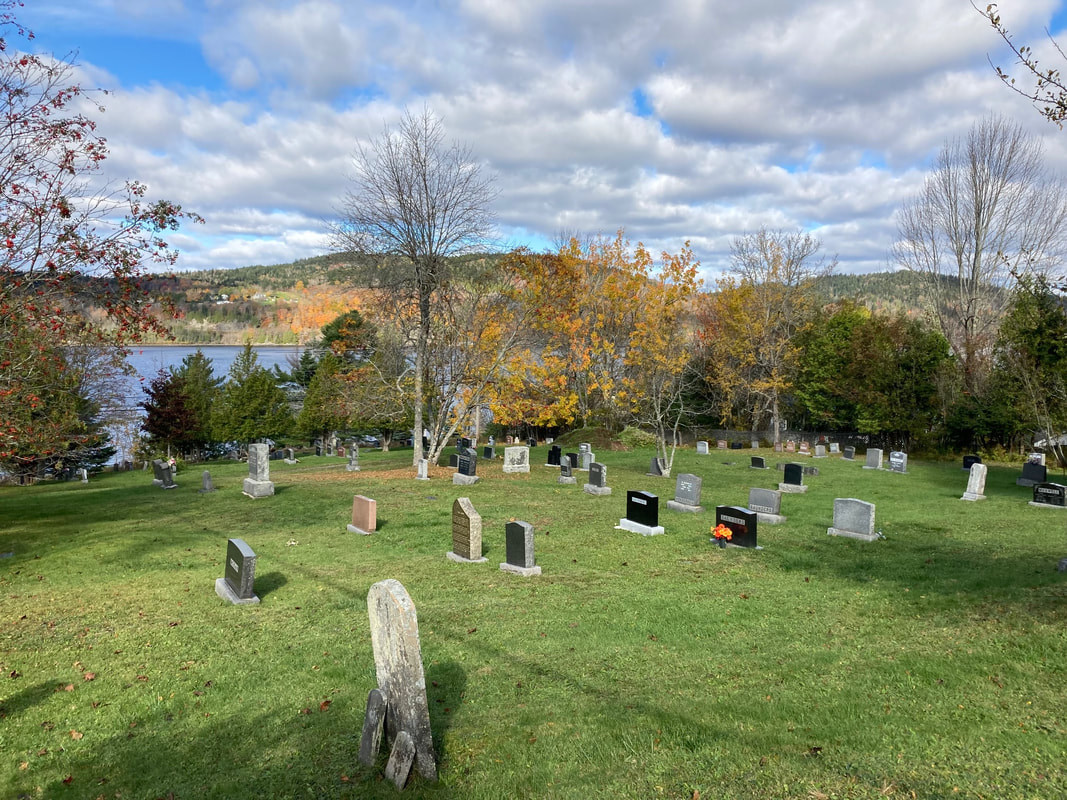
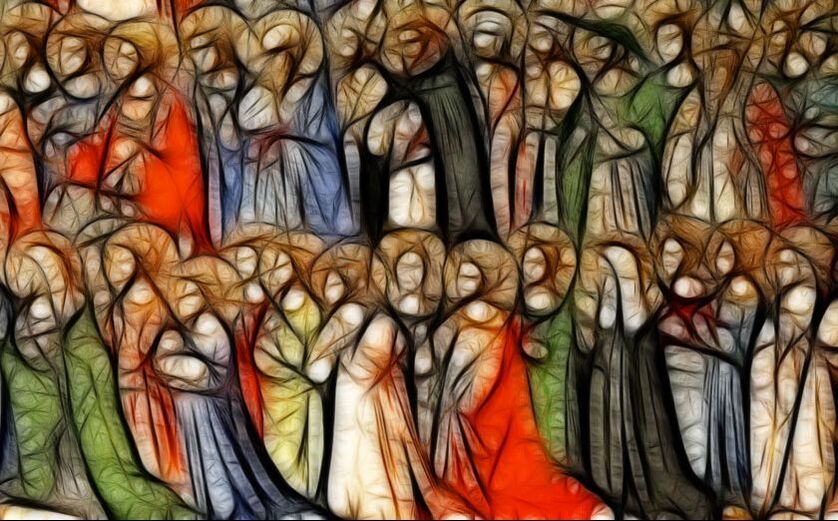
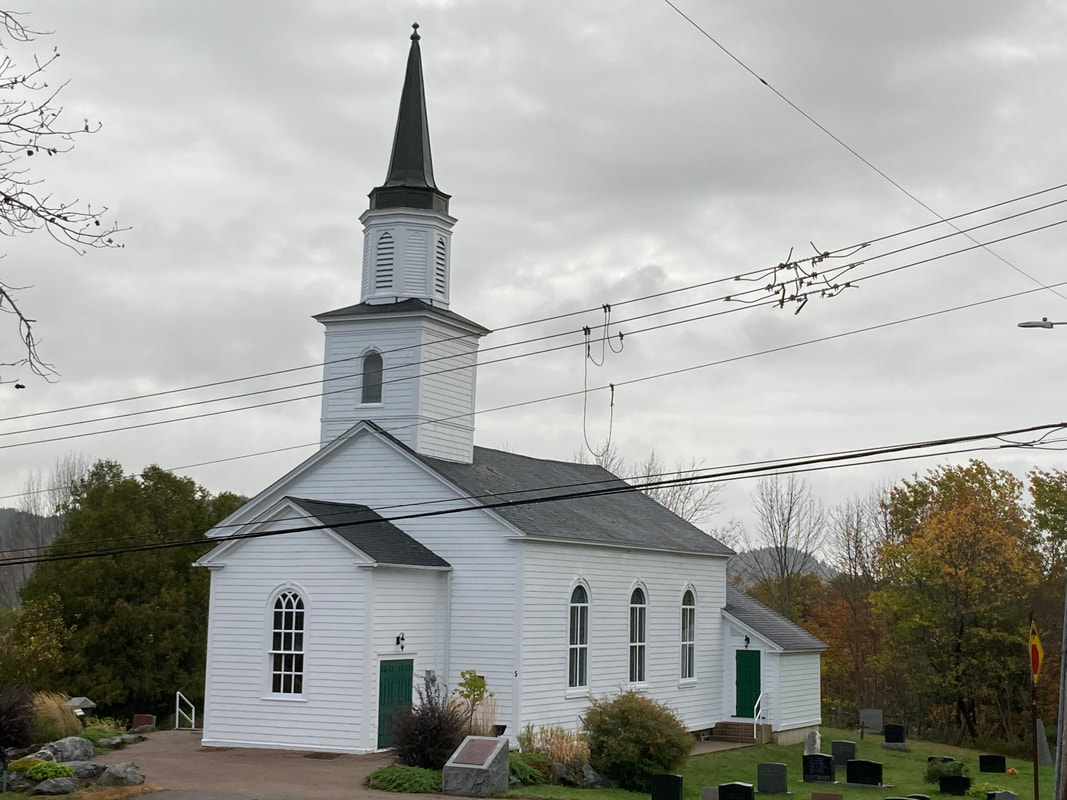

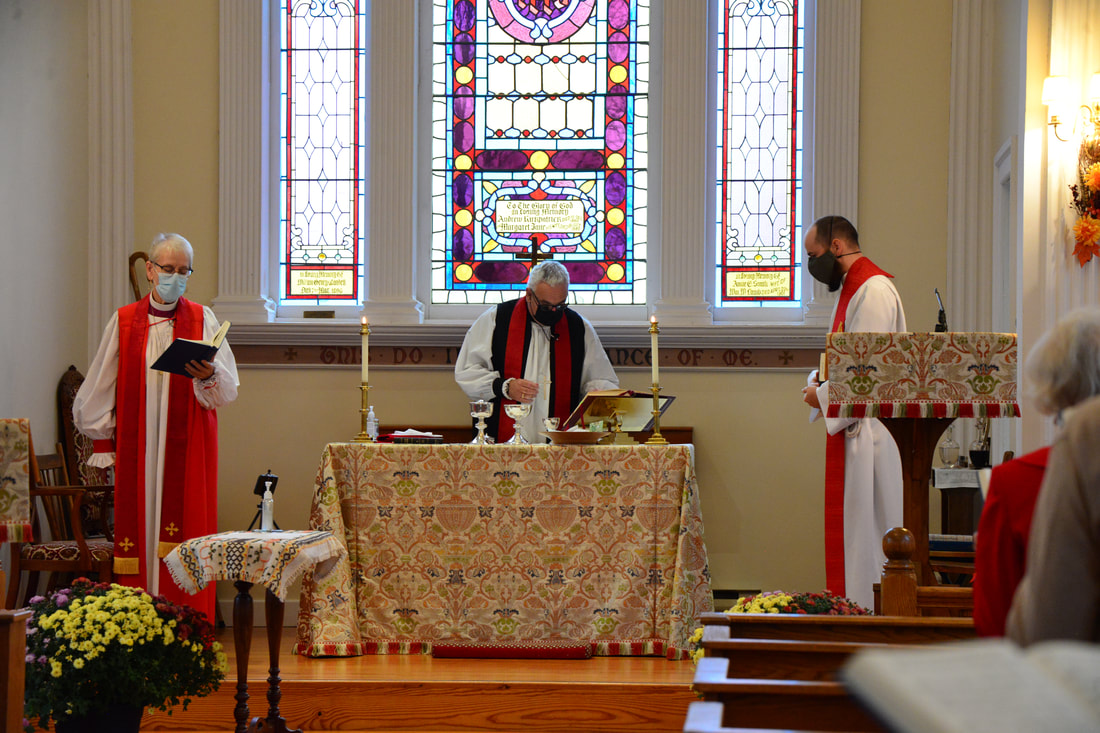
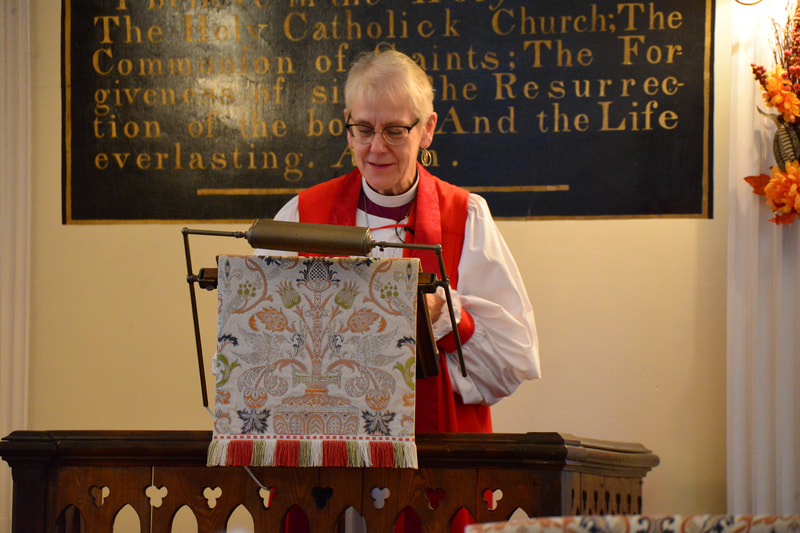
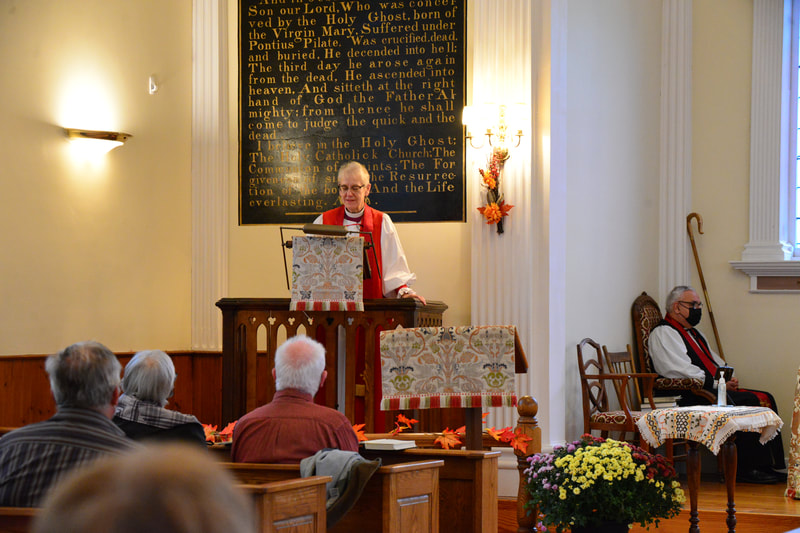
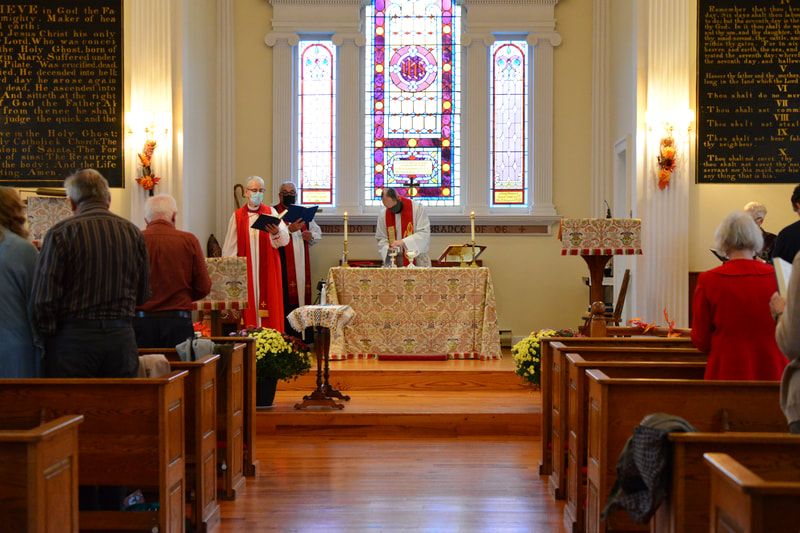
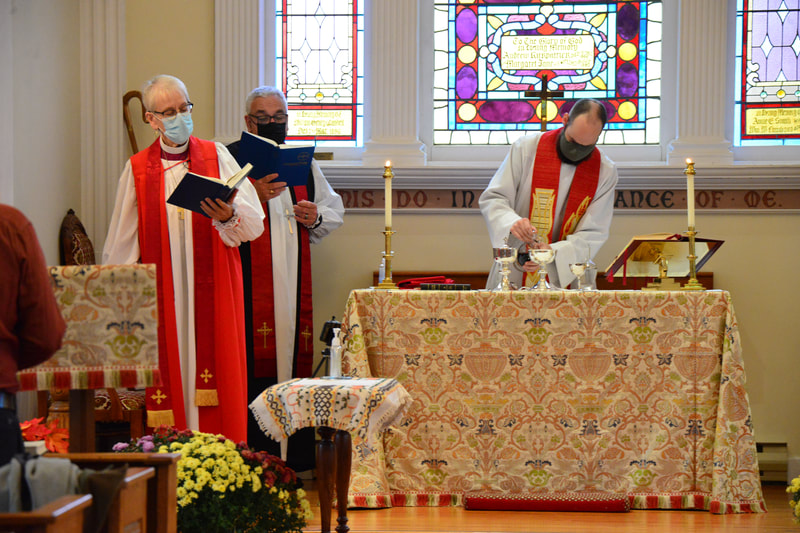
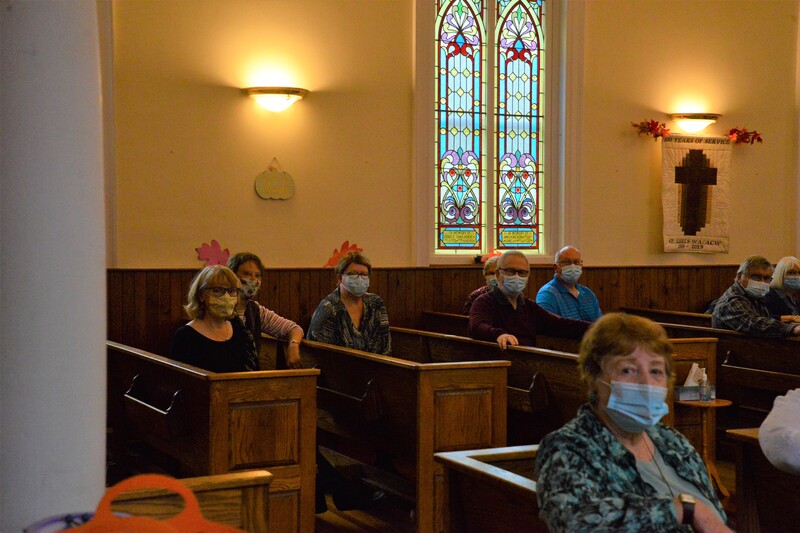
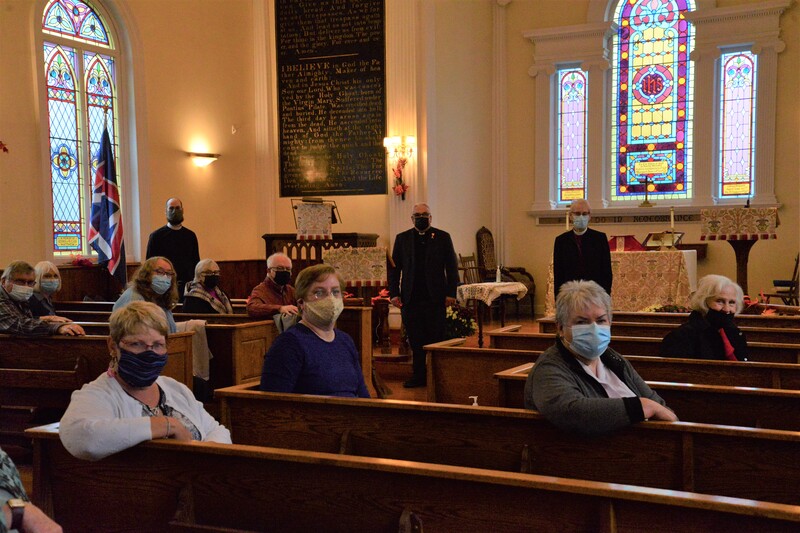
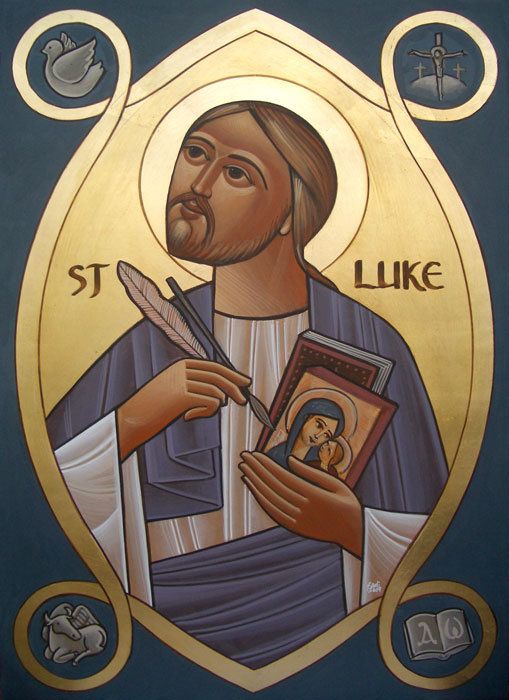


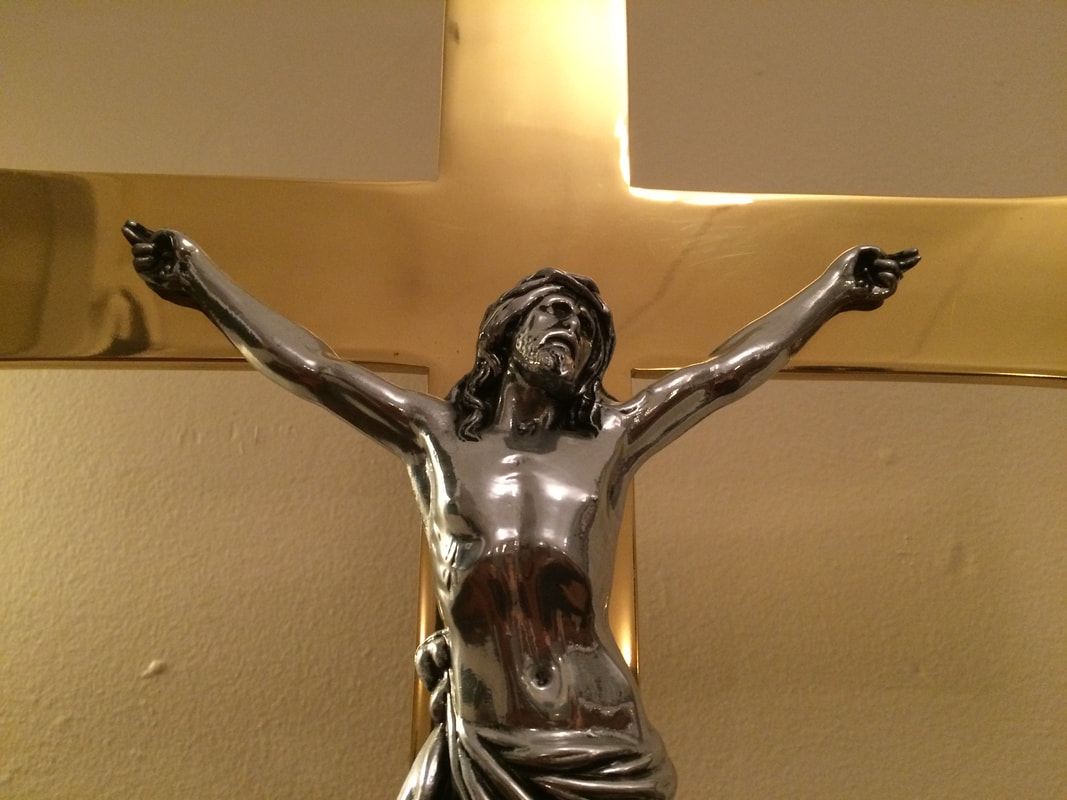

 RSS Feed
RSS Feed
